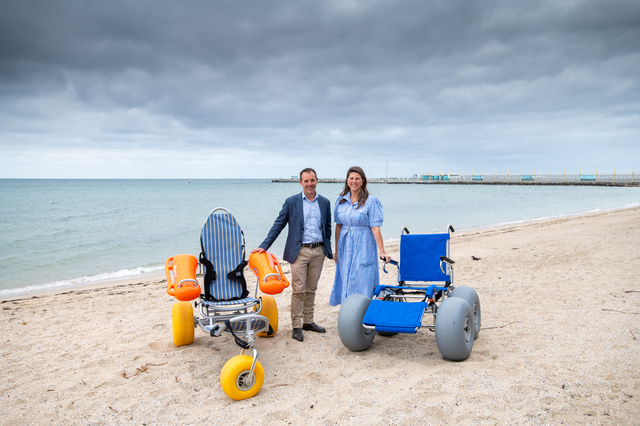A recent survey of 1500 Greater Geelong residents has provided new data on the community’s health and wellbeing, including the impacts of COVID-19.
The Geelong Preventative Health Survey is undertaken every four years to help the City of Greater Geelong better understand the health status of the community, and to inform evidence-based planning and decision-making across the region.
Telephone surveys of Greater Geelong residents, aged 15 years and over, were conducted between January and February this year by independent research agency, Local Government Research Group.
Survey participants, who remained anonymous, were asked questions designed to collect information about their health, lifestyle and wellbeing, such as fruit and vegetable intake and levels of physical activity.
Greater Geelong Mayor Stephanie Asher said this information would be vital to the planning of City services and facilities, and promotion of healthy behaviours and environments.
“This is the second time we’ve undertaken this extensive survey of our community, and with these results we’re able to see how residents’ health and wellbeing has changed since 2017,” Mayor Asher said.
“The timing of this survey gives us a greater understanding of how the pandemic has impacted the health and wellbeing of our community.”
This year’s survey also included new questions around involvement in community groups, family violence, multiculturalism and climate change.
The Geelong Preventative Health Survey data can be viewed via the Data Exchange Dashboard at www.geelongdataexchange.com.au
Significant changes from the survey’s 2017 results found that:
67 per cent meet national physical activity guidelines (an increase from 41 per cent in 2017);
37 per cent were at an increased lifetime risk of alcohol related harm (a decrease from 57 per cent in 2017);
15 per cent meet the recommended minimum daily vegetable intake (an increase from 10 per cent in 2017);
42 per cent consume take away meals 1 to 2 times per week (an increase from 11 per cent in 2017);
22 per cent consume sugary drinks every day (an increase from 16 per cent in 2017); and
20 per cent are under high/very high psychological distress (an increase from 10 per cent in 2017).









